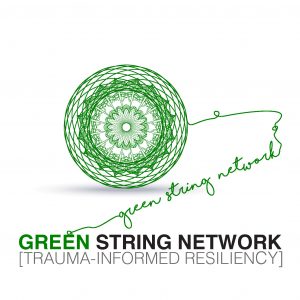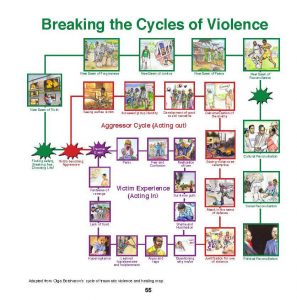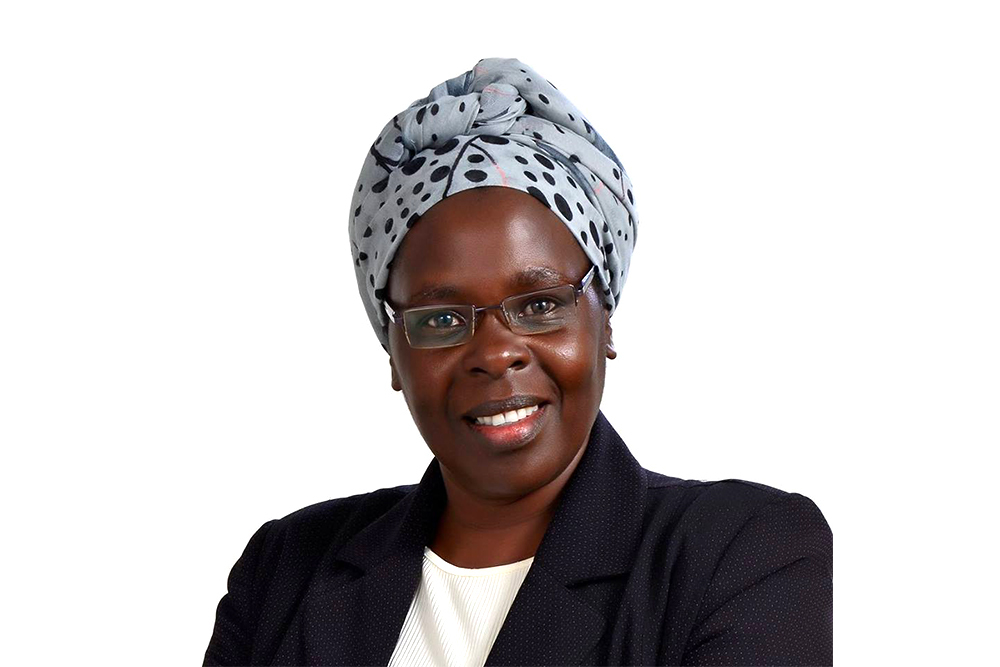In Kenya a new social healing and reconciliation program called Kumekucha – Kiswahili for “It’s a new dawn” – is empowering local leaders to create “sacred space” for people dealing with the country’s “massive” trauma, its director said.
Tecla Namachanja Wanjala, a graduate of Eastern Mennonite University’s Center for Justice and Peacebuilding, manages Kumekucha and is board chair for the program’s parent Green String Network (GSN). She earned a master’s degree in conflict transformation in 2003.
A peacebuilder for nearly three decades, Wanjala came “face to face” with trauma in 1991 as a worker in a Somali refugee camp. She has served as commissioner and acting chairperson of Kenya’s Truth, Justice and Reconciliation Commission and in other roles with organizations such as PeaceNet and Pact International.
“Look at historic injustice and the trauma that it caused, the ethnic clashes and the trauma that it caused,” Wanjala said in a video about Kumekucha. “Everybody needs healing, everybody needs to be aware of what is trauma … in all the sectors in our country.”

The protracted violence faced by entire generations in Kenya has left people living in survival mode for decades, said GSN Executive Director Angi Yoder Maina. She attended EMU’s Summer Peacebuilding Institute in 2007 and 2009, and has worked for decades in peacebuilding, including with partners in Somalia, Ethiopia, South Sudan and Kenya, and as an advisor to the Wajir Peace University Trust.
GSN’s namesake green string represents the moment the cycle of violence is broken, and the organization’s logo, a mandala, represents wholeness. Founded last year, the organization has developed empirically validated materials and “low-resource methods” which have been adapted for use in Somalia, South Sudan, Ethiopia and Kenya. It builds on local cultural practices and traditions to facilitate societal change for traumatized populations.
Kumekucha seeks to identify each village’s “Mama Anisa” – those individuals frequently called on to resolve local issues – and “support them in their own initiatives” using Kumekucha tools such as its facilitator handbook titled I refuse to be a victim. I am a resource for peace, said Yoder Maina.

Kumekucha’s Kenya-specific curriculum uses watercolor paintings by Kenyan artists whose paintings depict authentic experiences within the cycle of violence including options for victims to respond with nonviolent action.
Kumekucha “educates even the uneducated ones,” one participant said in the video about the program.
“A 60-year-old can understand it, and it can better his life,” he said. “This initiative has really helped our community and is life-changing. Those lucky enough to benefit from it have better lives than before.”
The education, another said, has “opened my eyes to the burden of over 10 years and helped reduce it.”
Kumekucha organizers hope the program’s grassroots results will eventually have national-level impact.

It was a gift to have Tecla Wanjala and Angie Yoder Maina with us talking about the Green String Network at the STAR for WPLP (Women’s Peacebuilding Leadership Program) participants in Nairobi in 2016! Angi has been instrumental in adapting and translating Elaine Zook Barge and Carolyn Heggen’s Village STAR into multiple East African contexts, starting with Somalia in the Quraca Nabadda curriculum and then developing Morningstar in South Sudan and now Kumekucha. They have worked with local artists in each place to adapt the cycles of violence and breaking free/building resilience pathways. What a great example of how the foundations that inform our work – destigmatizing trauma responses, understanding cycles of violence, and strategies for breaking free and building resilience – can be adapted toward healing and resilience building in many contexts. Go Green String Network!
Thanks Katie…
We have recently finished an adaptation to Ethiopia and are starting the piloting of the program also in Ethiopia. We also hope in the coming months to adapt the Kenyan version to work with more closely with the Kenyan police and other security forces. This is life giving work, we have been so grateful for EMU’s continual support.
Angie and Tecla, this is the best program to tackle trauma, understanding cycles of violence and strategies of CVE. I am pretty sure this will easily welcomed in Kenya. Great work, team GSN!